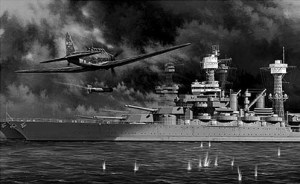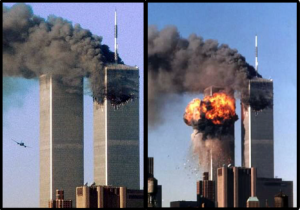 December 7, my calendar notes, is Pearl Harbor Day. The day commemorates lives lost in the attack on the U.S. naval base in Hawaii by Japanese forces in 1941. It led immediately to our entry into World II.
December 7, my calendar notes, is Pearl Harbor Day. The day commemorates lives lost in the attack on the U.S. naval base in Hawaii by Japanese forces in 1941. It led immediately to our entry into World II.
I understand the clutch in the gut Americans felt when they turned on their radios early on that Sunday morning. I felt the same when I walked into a room at the U.S. consulate in Dhahran, Saudi Arabia, on September 11, 2001, and saw the television tuned to CNN. In living color, we watched over and over the replays of the attacks on New York and other places “out of a clear blue sky.”
 In an article in the Foreign Service Journal (January, 2012), Margaret Sullivan recounted her early years in China as the daughter of an American missionary teacher when Japanese forces took over China. Ms. Sullivan remembers a Japanese soldier smiling at her family as they went through a checkpoint.
In an article in the Foreign Service Journal (January, 2012), Margaret Sullivan recounted her early years in China as the daughter of an American missionary teacher when Japanese forces took over China. Ms. Sullivan remembers a Japanese soldier smiling at her family as they went through a checkpoint.
Now, she said, she has trouble accepting the wartime evaluation of Japanese people.
We tend to demonize any who are related to those who harm our country. We have difficulty seeing “the enemy” as individuals, some choosing to do harm, others simply caught up in an evil they did not condone.
Ms. Sullivan wrote: “I still grapple with the critical distinction between abhorring evil acts and casually lumping together all of a particular group of people as embodying that evil. And I am profoundly troubled for my own country when some among us incite hatred against the spectrum of other individuals and their widely differing communities and beliefs, as a single ‘bad guy’ entity.”

